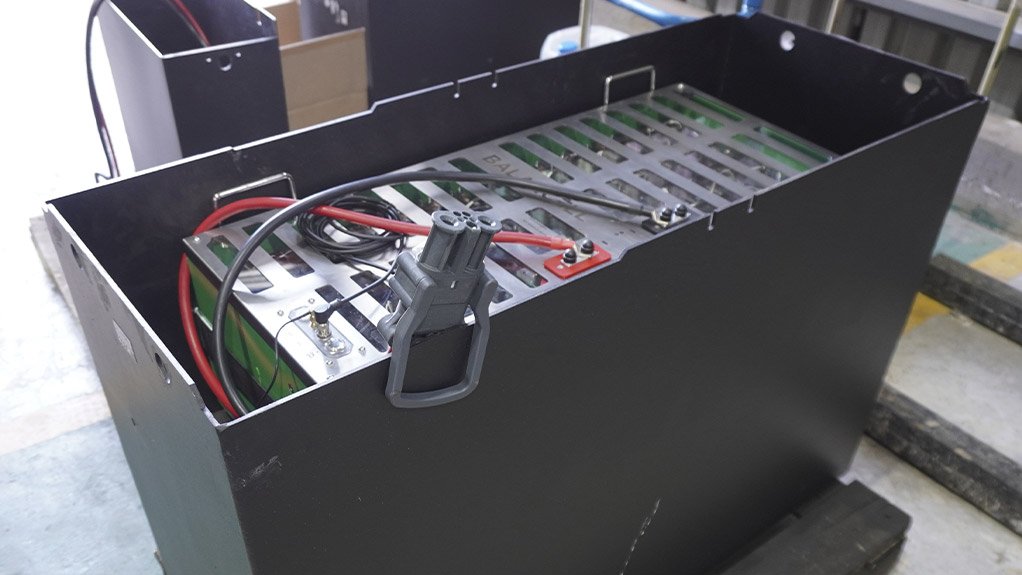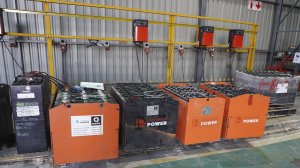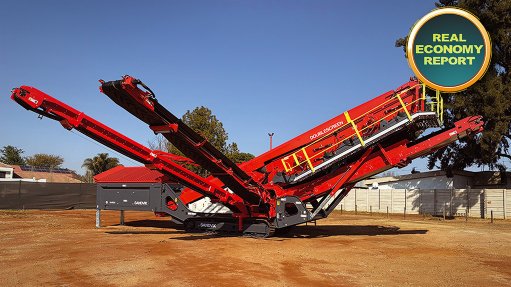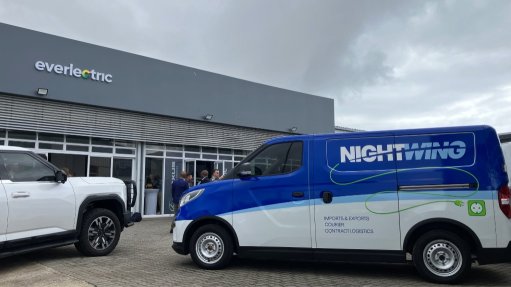Cost of lithium-ion forklift batteries recovered in total uptime and efficiency
This article has been supplied.
The less time it takes to charge a forklift battery, and the longer the charge lasts, the greater the contribution to efficiency and productivity on the warehouse or distribution centre floor. Hence, the lithium-ion battery is stealing the march on its cheaper cousin, the lead-acid battery, according to industry experts.
While forklifts are the mainstay of industry, it is also important that they do not contribute to greenhouse gas emissions, are cost-effective and help make the business efficient. Electric forklifts which use batteries are fast replacing yesteryear’s diesel- and gas-powered forklifts.
While forklifts powered by diesel engines are relatively cheaper to operate and the fuel is easily available, they are not environmentally friendly because of fuel emissions. There are stringent laws on carbon emissions and diesel fumes are no longer permitted in food handling businesses. The use of liquid petroleum gas engines is less economical and it also means holding a ready supply of gas cannisters on site.
Hence, electric forklifts have largely replaced diesel and gas driven forklifts. Among electric forklifts there are those that use the more expensive lithium-ion battery, and those using the lead-acid battery.
Lithium-ion forklift batteries are more energy-efficient and charge faster than lead-acid batteries, saving customers time and money.
While the lead battery has a charging efficiency rating of 65%, the lithium-ion battery has an energy efficiency of about 95 to 96%, returning at least 30% greater efficiency. This is a ratio between the energy used to charge the battery and the energy being stored; and indicates the loss during charge. With lithium-ion batteries, operators can enjoy longer run-times and zero decline in performance as the battery discharges.
The lithium-ion battery also takes less time to charge. With a fast charger, the battery can be charged 50% in 60 minutes. Unlike a lead-acid battery that needs to charge for eight hours. Also, no cool-down period is required with the lithium-ion battery, like is necessary on a lead-acid battery. This means you can use a single lithium-ion battery for multiple shifts.
Duan Tredoux, Brand Manager at 600SA for the Industrial Power business unit, says the efficiency of a lithium-ion battery contributes in no small measure to the efficiency of a forklift, and thereby the productivity of the business.
Tredoux says that according to a study by the company, South Africa is surprisingly one of the countries that has most aggressively adopted lithium-ion batteries, especially in the forklift market. Lithium-ion batteries now dominate between 65% to 70% of our market, compared with lead-acid batteries, because of less maintenance, lower costs, environmental sustainability, and overall worker satisfaction.
He says a major plus factor of his company’s battery chargers is that they can be programmed to charge either lithium-ion or lead-acid batteries.
“If the customer buys one of our chargers for a lead-acid battery and then three years later decides to change to lithium-ion batteries, there is no need to invest in a new charger. We simply reprogramme the charger to be able to charge lithium-ion batteries as per their charge profile.”
Tredoux says unlike lead-acid batteries, lithium-ion batteries lend themselves to opportunity charging, when an operator takes advantage of any downtime to charge a forklift battery. That means the forklifts are simply plugged into chargers when operators are on breaks, lunch, or changing shifts, as opposed to the time-consuming swapping of batteries that must happen with lead-acid batteries. Also, lithium-ion forklift batteries don’t require traditional maintenance like watering or equalising.
He says while a lithium-ion battery costs more to buy, the return on investment offsets the initial investment. While a lead-acid battery will give between four and five years of service depending on how it is maintained, the lithium-ion battery could give up to eight to ten years of trouble-free service.
Tredoux adds that one of the most crucial components of a lithium-ion battery is the internal Battery Management System (BMS), a control system which controls and protects the battery cells during performance and from damage preventing potential faults from occurring.
Because the BMS tracks temperature, charging status, and battery usage, and stores the data, extracting that data yields insights into the warehouse operations. Understanding forklift battery data can help managers make informed decisions about how they can reduce the total costs of batteries in their fleets.
Also, the BMS can help to remotely monitor most problems and have them fixed without sending out a technician to site. This reduces the downtime for the customer.
“With a lead-acid battery, a technician must go on site to find out what the problem is. If all the technicians are busy, the customer will unfortunately have to wait, resulting in downtime.
“With a lithium-ion battery, the excellent operational efficiencies and double the life span as compared with a lead-acid battery, far outweigh the initial higher cost,” says Tredoux.
CFAO Equipment
Comments
Press Office
Announcements
What's On
Subscribe to improve your user experience...
Option 1 (equivalent of R125 a month):
Receive a weekly copy of Creamer Media's Engineering News & Mining Weekly magazine
(print copy for those in South Africa and e-magazine for those outside of South Africa)
Receive daily email newsletters
Access to full search results
Access archive of magazine back copies
Access to Projects in Progress
Access to ONE Research Report of your choice in PDF format
Option 2 (equivalent of R375 a month):
All benefits from Option 1
PLUS
Access to Creamer Media's Research Channel Africa for ALL Research Reports, in PDF format, on various industrial and mining sectors
including Electricity; Water; Energy Transition; Hydrogen; Roads, Rail and Ports; Coal; Gold; Platinum; Battery Metals; etc.
Already a subscriber?
Forgotten your password?
Receive weekly copy of Creamer Media's Engineering News & Mining Weekly magazine (print copy for those in South Africa and e-magazine for those outside of South Africa)
➕
Recieve daily email newsletters
➕
Access to full search results
➕
Access archive of magazine back copies
➕
Access to Projects in Progress
➕
Access to ONE Research Report of your choice in PDF format
RESEARCH CHANNEL AFRICA
R4500 (equivalent of R375 a month)
SUBSCRIBEAll benefits from Option 1
➕
Access to Creamer Media's Research Channel Africa for ALL Research Reports on various industrial and mining sectors, in PDF format, including on:
Electricity
➕
Water
➕
Energy Transition
➕
Hydrogen
➕
Roads, Rail and Ports
➕
Coal
➕
Gold
➕
Platinum
➕
Battery Metals
➕
etc.
Receive all benefits from Option 1 or Option 2 delivered to numerous people at your company
➕
Multiple User names and Passwords for simultaneous log-ins
➕
Intranet integration access to all in your organisation























